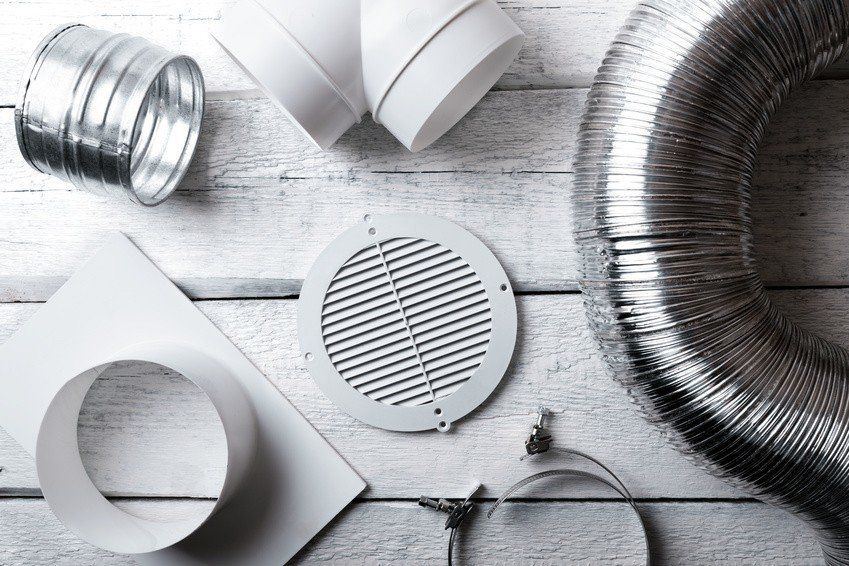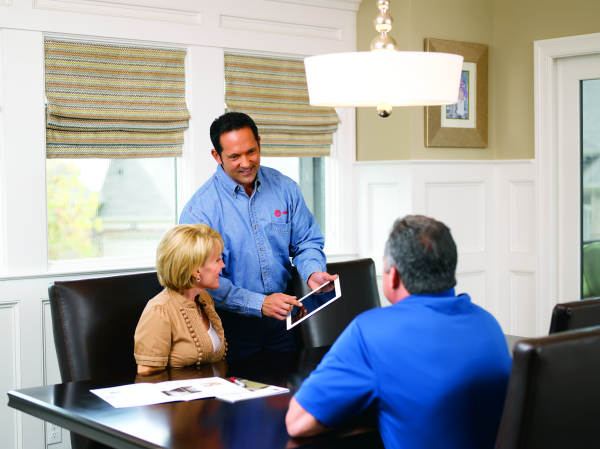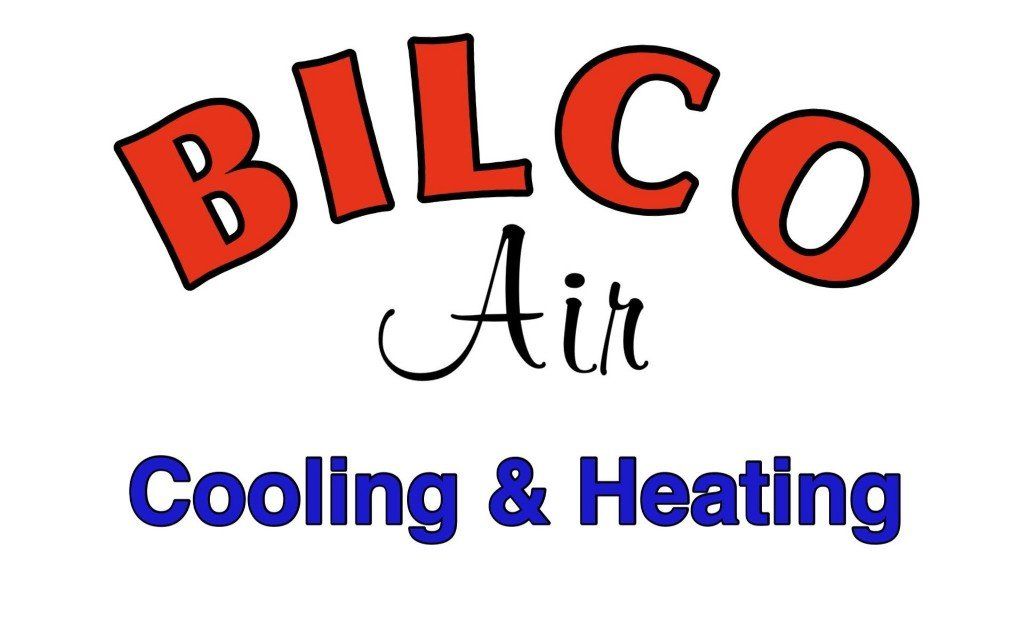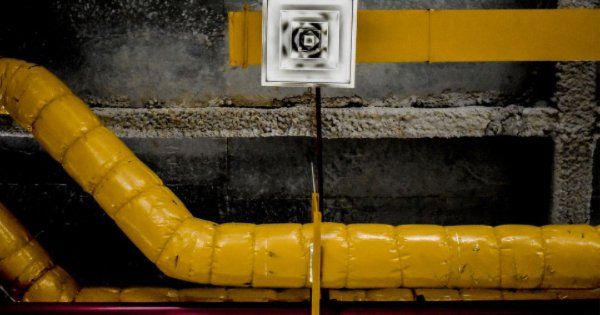The Dire Importance of Changing Your Air Filter
Bilco Air Cooling & Heating • June 19, 2019
Part of being a responsible home owner means home maintenance. And some maintenance tasks can create big problems if they're ignored.
Changing the air filter on your HVAC system is one of those maintenance tasks which can be chronically ignored by the average homeowner. Because your air filter is tucked away inside your unit, it's really easy for you to forget about them. Before you know it, it's been an entire year, and you're in the market for industrial HVAC repairs because you didn’t remember to change the filter on time.
Fortunately, changing the air filter is a simple task for any industrial HVAC technician. The only challenges are remembering when to do it and choosing the right filter for your needs.
Here's what you should know about choosing the right air filter for your needs.
Different Types of Filters
Most furnace and air conditioner filters are disposable. This means that they're made of a biodegradable paper or a similar material, which is shaped into either cells, fins, or screens. The filter is designed to capture as many airborne particles and debris as possible as air passes through it.
Filters can often be purchased in packs of three or four, or even more for economically-minded consumers. It's very important that you select the appropriate filter for your system -- using a filter that doesn't quite fit can cause just as many problems as using a dirty filter.
If you're confused about how to install a new filter or you want to discuss further air filter options, you can ask your serviceman the next time your industrial HVAC repairs
service visits your home.
How Often You Should Change Your Filter
If you use your HVAC unit year-around, or at least six months out of the year, you should change the air filter at least once every three months.
However, you should inspect your filter once every single month, especially if you run your HVAC system six months out of the year or more. You might have to change your filter more frequently if any of the following apply to your household:
- You have pets inside your home: Pet dander becomes airborne and circulates through your ventilation system, just like household dust.
- Your family is large: Extra activity means extra dirt, dust, and debris.
- Anyone in your family smokes indoors.
- Anyone in your family experiences allergies, or has a respiratory condition.
- Your home is in a particularly windy area, and there are few nearby trees or bushes to block the wind.
- A wildfire has recently occurred downwind of your area—airborne wildfire ash is definitely going to make it into your home, and your filter is going to have to deal with it.
- You occasionally use a wood stove or fireplace in your home.
- Your home is next to or in the middle of a working farm, or you have a large garden.
- Construction is taking place near or around your home.
Any and all of these factors could lead to a clogged air filter. When you check your filter once every month, you must change the filter immediately if you find any of the following:
- Filter damage, such as bent fins, collapsed cells, or dented construction. Whether it happened in the package or after installation, it can't do its job correctly if it's broken.
- A damp filter: If moisture or humidity somehow found its way into your filter compartment, mold can start to grow on your filter, which would then be spread throughout your house through the ventilation system.
- Visible mold or growth on the filter: Any kind of mold or growth on the filter spells bad news for both the integrity of your HVAC system, and for your family’s health. Besides changing the filter immediately (and possibly turning off the HVAC system completely), you must call your local industrial HVAC repairs specialist to inspect your system.
Getting the Technician
Once every year, you should call your industrial HVAC repairs technician to inspect your unit and make sure it’s working smoothly.
With proper maintenance, most air conditioners will easily last 15 years. Keeping your furnace and air conditioner in good repair is essential, not only for the comfort and longevity of your home and appliances but for the health and safety of you and your family.

HVAC Repairs Houston TX Maintaining proper care of your cooling and heating unit is essential to the comfort of your workplace or home. Houston TX is known for their hot summers and ensuring your air conditioning unit is routinely maintained can make the transition from Spring to Summer easier and help the unit last longer. With regular maintenance, most air conditioners last 15 years. Skipping out on maintenance can result in a 5% loss of operating efficiency each year. A licensed HVAC repair expert can assist in HVAC repairs to prevent early breakdown and reduce your energy bill by 15%. Before you think about DIYing it, here are some HVAC repair tips. Turn Off Power: Before taking anything apart, locate the power source and turn off all power. The easiest way to ensure safety from electrocution is to completely unplug the HVAC unit. It is recommended to at least shut off the power on the unit itself as well as the switch in the breaker box. Debris Removal: Once the power is off, take the fan grill and fan out of the unit and clean large debris from the inside. Doctor the Fins: The fins allow the air to flow. The fins are delicate so use a gentle brush on a shop vacuum and rinse the fins with water from the inside out. If needed, an HVAC repair service can recommend a chemical cleaner. Once the fins are clean, gently straighten any bent fins with a butter knife. Detail the Exterior of the Unit: Put the air conditioner back together and clean up the area around the unit. Remove leaves nearby and if the unit is not currently being used, a cover can be placed on top to keep debris from falling inside. Also make sure the unit is standing on level ground. Evaporator Coil and Drain: Check the evaporator coils on the inside of the house and clean with a spray foam if necessary. Then check to make sure the evaporator drain is unclogged and clear of algae. Even with taking care of the air conditioner yourself, request services of HVAC repairs Houston TX to help keep your HVAC running efficiently for as long as possible.

What size air conditioner or furnace do I need for my home? We get this question a lot and it’s an important one. Because if you buy an HVAC system that’s too big, you’ll end up wasting money and energy. And if it’s too small, you won’t get enough cool or warm air flowing through your home. Figuring out an accurate HVAC size involves 2 basic steps. But there are a lot of details to consider in the process. STEP 1: DETERMINE HOW MANY BTUS OF HEATING AND TONS OF AC YOU NEED Method 1: Manual J Calculation The best way to determine the perfect HVAC unit size is to have a Manual J calculation done for your house. The Manual J calculation is the most precise measurement available because it considers factors like: Square footage Climate zone Ductwork Number and style of windows Natural shade or sunlight Quality and amount of insulation Number of people using the space Heat-generating appliances Many utility companies offer a free energy audit that will provide you with your Manual J calculation — just ask. You can also hire an energy auditor or HVAC dealer to do your audit. With a Manual J report in hand, you’ll know exactly how many British Thermal Units (BTUs) of heating and cooling you need for your home. Method 2: Square Footage Measurements You can also get a rough estimate by looking at the square footage of your house. This chart is a general guideline that covers tiny houses to average size homes. House Square Footage BTUs Needed 100 – 150 5,000 150 – 250 6,000 250 – 300 7,000 300 – 350 8,000 350 – 400 9,000 400 – 450 10,000 450 – 500 12,000 500 – 700 14,000 700 – 1,000 18,000 1,000 – 1,200 21,000 1,200 – 1,400 23,000 1,400 – 1,500 24,000 1,500 – 2,000 30,000 2,000 – 2,500 34,000 No matter which method you choose, the goal is to estimate the number of BTUs you need to comfortably cool or heat your entire home. Once you’ve got that, it’s time to shop around and make your HVAC pick. STEP 2: DECIDE WHICH UNIT TO BUY Now it’s time to work with Bilco Air Cooling & Heating to learn more about the heating and cooling products we offer. If your BTU requirement is between sizes, simply go with the bigger unit. Having a little extra power isn’t bad. This will make sure your system can handle the load on days with extremely high or low temperatures. If you get a unit that’s too small, you may regret it on the hottest and coldest days of the year. Just beware of getting too big of a unit, because it will heat or cool your home too quickly and then shut off. This frequent on and off cycle will cause uneven temperatures and higher energy bills. Rule of Thumb — The maximum size unit you should buy would be 15% over the BTUs you need for cooling and 40% of the BTUs for heating. The max for heat pumps is 25%, since it handles both cooling and heating.



